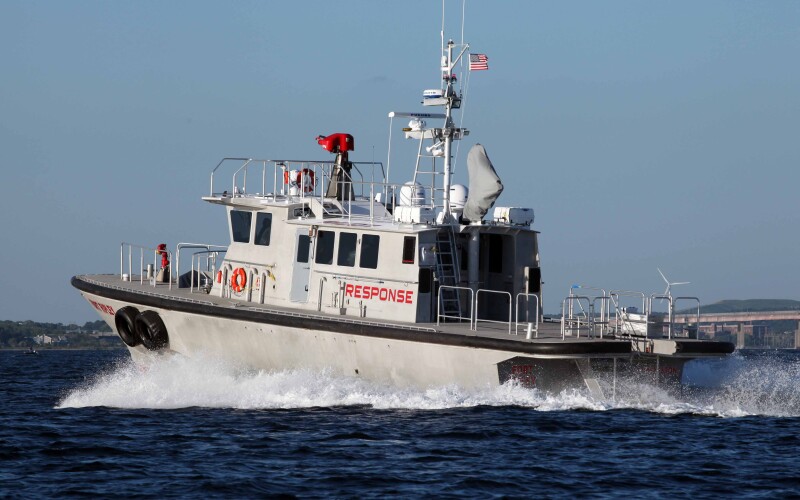A pilot boat in the Charleston Branch Pilots fleet has been repowered and outfited with a gyro stabilizer after 10 years of service for the port of Charleston.
The 65’ Fort Ripley was designed by Ray Hunt Design and Gladding-Hearn Shipbuilding, Duclos Corporation and built by the Somerset, Mass., shipyard in 2014. With a top speed of 28 knots, it was the first commercial vessel in the U.S. powered by Volvo Penta IPS drives with twin forward-facing, counter-rotating propellers. The vessel was named one of WorkBoat's Significant Boats of 2014.
The aluminum vessel recently returned to Gladding-Hearn where its three existing IPS 900 propulsion systems were replaced with three new Volvo Penta IPS 1050 propulsion systems, including new 800-Bhp D13 engines, shafts, IPS-30 pods, and an EVC 2.0 control system and displays in the wheelhouse. Engine speed and pod steering are controlled by three joysticks, one on the wheelhouse console and two on the aft docking stations.
“The IPS system saves weight and space for additional fuel or accommodations and has proved to increase maneuverability and consume about 30 percent less fuel,” said Peter Duclos, the shipyard’s co-president and director of sales.
Fort Ripley was also outfitted with a Seakeeper 40 gyro stabilizer, which was installed in the space of a redundant fire pump and is expected to reduce vessel roll up to 80%. The 4,000-lb. gyro required structural modifications for a substantial foundation in the tank room.
“This is our second Seakeeper gyro installation on a pilot boat. Its effect is noticed mostly at rest or slow speeds, but it improves vessel feel and handling at all speeds,” said Duclos.
In 2022, Gladding-Hearn delivered the pilot boat Texas City to the Galveston-Texas City Pilots, equipped with a Seakeeper 30HD stabilizing gyro.
Other work on the Fort Ripley included servicing the Humphree interceptors, bilge system, HVAC system, and replacing the wheelhouse windows with electrically heated windows.




